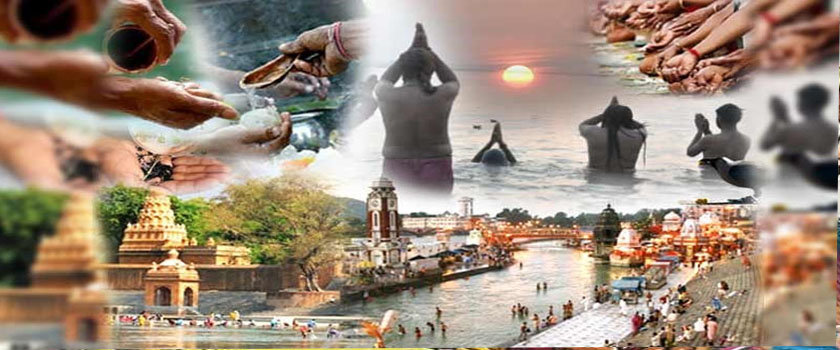
Bharatiya culture says that, just as we serve our parents and close relatives when they are alive as part of abiding by ourDharma, we have certain duties unto them after their death. The shraddha rites provide us with an excellent opportunity to fulfil these duties and repay our debts unto the pitars (ancestors). The shraddha rites are necessary so that the journey after death of our parents, who have taken our utmost care during our childhood, becomes comfortable and without any distress, and that they acquire sadgati (Momentum for moving to the next higher region). If shraddha is not performed, the desires of the pitars (Deceased ancestors) remain unfulfilled. Negative energies make easy victims of such desire-riddled pitars and then, enslave them.
Shraddha, Sanskrit śrāddha, also spelled sraddha, in Hinduism, a ceremony performed in honour of a dead ancestor. The rite is both a social and a religious responsibility enjoined on all male Hindus (with the exception of some sannyasis, or ascetics). The importance given in India to the birth of sons reflects the need to ensure that there will be a male descendant to perform the shraddha ceremony after one’s death.
The rite is performed for the deceased father, grandfather, and great-grandfather and also for the mother, grandmother, and great-grandmother. It is intended to nourish, protect, and support the spirits of the dead in their pilgrimage from the lower to the higher realms, preceding their reincarnation and reappearance on Earth. The rites are performed between the 11th and 31st day after death, depending on caste traditions, and at regular intervals thereafter. The first annual death anniversary is observed by a shraddha ceremony that enables the deceased (preta) to be admitted into the assembly of forefathers (pitri).

Gaya derives its name from the mythological demon Gayasur (which literally means Gaya the demon), demon (asur, a Sanskrit word) and Gaya. Lord Vishnu killed Gayasur, the holy demon by using the pressure of his foot over him. This incident transformed .......
Call Us 9835006313 | 9204111959
Send an Email on YourEmail@gmail.com
Visit Us- Nawagarhi teenmohani near
Ramkrishna Ashram gayaji-823001 Bihar
© Copyright 2024 by Pandit Ajeet Kumar Agniwar . All right Reserved - Design By Tradewire Media Solution LLP